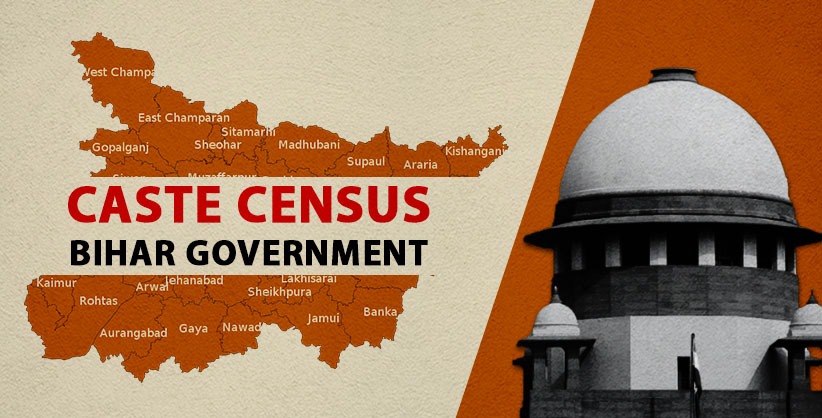NEW DELHI: The Supreme Court on Wednesday agreed to hear on Friday a petition for quashing the Bihar governments decision of June 6, 2022 to conduct a caste survey in the state.
A bench of Chief Justice D Y Chandrachud and Justice P S Narasimha allowed a plea for listing of the matter on January 13.
A counsel mentioned the petition filed by a social worker from Nalanda, Akhilesh Kumar, saying such a decision fell under the domain of the Union government.
The PIL, drawn by advocate Barun Kumar Sinha, claimed the move was also against the basic structure of the Constitution, besides being "illegal, arbitrary, irrational, discriminatory and unconstitutional.
The plea filed through advocate Abhishek sought quashing of the notification issued by deputy secretary, government of Bihar, in respect of conducting a caste survey in the state and to refrain the authorities concerned from conducting the exercise.
The plea alleged that the notification dated June 6, 2022, violated Article 14 of the Constitution, which provides for equality before law and equal protection of the law.
If the proclaimed purpose of the caste-based survey is to accommodate the people of state suffering caste persecution, the distinction on the basis of caste and country of origin is irrational and unjustified, the plea said.
According to Section -3 of the Census Act, 1948 that it is the central government which is empowered to take census in the whole or any part of the territory of India.
A perusal of scheme of Census Act, 1948, made it clear that caste census is not contemplated in the law and the state government has no authority in law to conduct caste census.
Though the population of Scheduled Caste and Scheduled Tribes are also provided in the census reports, there is no provision in the Constitution regarding caste configuration.
"The state government by executive orders cannot conduct caste census in the absence of legislation on the subject. In a state which is governed by rule of law, executive orders must get basis and genesis from law. The impugned notification for caste census in the State of Bihar lacks statutory flavour and constitutional sanction," it said.
To uphold the provisions of Article 14 and Article 15 of the Constitution of India and under Section 123(3A) of the Representation of People Act, 1951, a provision has been made that a candidate set by the political party in the election to Parliament or Assemblies cannot make an appeal to the voters on the ground of religion or caste etc. Therefore, the use of religion or caste for the purpose of votes has been termed as corrupt practices under Section 123 of Representation of People Act, 1951, it pointed out.







